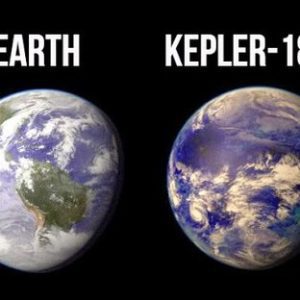Considering the environmental conditions on Venus…under which no human built space probe has lasted more than a few hours, at best, while on the surface of the planet, Mars is a much better bet for a planet that humans could actually land upon…and return from!
While you might be able to successfully land astronauts on the surface of Venus…STAYING there for any length of time is very problematical!
IF the climatic conditions of Venus damage the spacecraft to such a degree that it is unable to lift off again…you will have doomed the crew to eventual death on the planet when their consumable supplies and oxygen ran out!
Perhaps the Japanese would like to take the risk…as they invented “kamikaze” missions, but most people do not think it worthwhile to take such risks with the lives of the astronauts just to say that human beings have landed there!
Perhaps someday our spaceflight capabilities will have improved so as to make a manned landing on Venus an acceptable risk…but humanity is nowhere near that now…and probably won’t be for a very long time…as conditions on Venus are very extreme…and they’re not getting any better!

Above: Venus
On the one hand, Venus certainly marches to the beat of its own drum. It has one of the strangest day-night cycles in our solar system. A day on Venus, defined as the time it takes for the planet to complete one rotation on its axis, lasts about 243 Earth days—much longer than its year, which is just 225 Earth days. On top of that, Venus spins backward, or retrograde, compared to most other planets. So, if you were standing on its surface, you’d see the Sun rise in the west and set in the east.
This strange rotation isn’t just random—it tells us something significant about Venus’s past. All the planets in the solar system formed from the same swirling disk of gas and dust, which should have made them rotate and orbit in the same direction. But Venus, along with Uranus, breaks this pattern, almost as if it’s been flipped upside-down.
Why does Venus rotate so differently? One theory is that a colossal collision early in its history knocked it into its current position. Another possibility involves the gradual effects of gravitational forces from the Sun or other planets, slowly tipping its axis over time. There’s even a suggestion that tidal forces within Venus itself might have played a role. Whatever the reason, this unusual tilt means that, despite its long rotation, a single day on Venus—measured from one sunrise to the next—ends up being about 116 Earth days.
Then there’s Venus’s atmosphere. It’s incredibly dense and goes completely around the planet much faster than the planet rotates. There are, therefore, winds that reach hurricane speed and because the atmosphere is incredibly dense, that wind becomes all the more powerful. They call this wind super-rotation. It’s not a good place to call home. It would blow you away.
Surface conditions on Venus are among the harshest in the solar system, and not just because of its powerful winds. The average temperature reaches 864°F (462°C)—hot enough to melt lead—making Venus even hotter than the surface of Planet Mercury. No wonder the Soviet Venera probes didn’t last long on its surface.
This heat happens because Venus has a dense carbon dioxide atmosphere, which traps the heat in a runaway greenhouse effect. The atmospheric pressure on Venus would crush you. At the surface it’s about 92 times greater than Earth’s—equivalent to being nearly a mile (about 1.6 kilometers) underwater. If you were a mile under water on Earth and your submarine imploded, the pressure would kill you. That’s how heavy the atmosphere is on Venus. It would crush most standard spacecraft instantly, so any lander designed for Venus is going to have a hard time lasting very long.

Above: Actual image taken by one of the Soviet Union’s Vaneera probes from the surface of Venus. The sky color is due to clouds of sulfuric acid.
The Soviet Union’s Venera program was the only successful series of landers on Venus, managing to place ten probes on the surface that transmitted data back to Earth. The first successful transmission came from Venera 7 in 1970, which survived for about 23 minutes. Later models, like Venera 13 and Venera 14, lasted over 2 hours, capturing images and analyzing soil samples before succumbing to the planet’s brutal conditions. These missions provided critical data about Venus’s surface and atmosphere. It’s largely how we know what it’s like on the surface.

Above: Mars
On the other hand, Mars has a whole other set of problems for us, though it’s generally more hospitable than Venus. Mars is farther from Earth on average than Venus, but its less extreme. For example, Mars is cold, not hot. It can get as cold as about -140°C to 20°C (-220°F to 68°F). That’s cold, but it’s easier to manage than the heat on Venus.
The Martian atmosphere is very thin, with surface pressure less than 1% of Earth’s. It’s almost a vacuum, and the atmosphere that is there is not breathable.
A Martian day (called a sol) is only slightly longer than an Earth day at 24 hours and 37 minutes, compared to Venus’ very, very long days. Mars’ day and night is much more similar to Earth’s.
But Mars lacks a strong magnetic field. As a result, its constantly bombarded by cosmic radiation, and too much exposure to that can cause cancer or even death, but it’s still more manageable than Venus.

Above: Actual image of the surface of Mars taken by the Perseverance Rover
Rovers on Mars function for years, compared to the minutes or hours a probe might survive on Venus. For example, the Mars Opportunity rover operated for over 14 years, far exceeding its planned 90-day mission. You couldn’t do that on Venus.
Both planets are important in helping us understand planetary formation, evolution, and the potential for past or present life. They also help us understand what might happen in the future to our own planet.
Both planets are important, but it’s easier to explore Mars than Venus.






